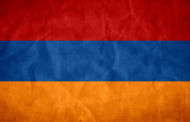The Baltic countries’ demands Russia should pay compensations for the period in their history they keep calling “Soviet occupation” have no legal or political prospects to succeed, Russian experts say with certainty. The anti-Russian component has been felt in the Baltic politics felt for many years, they say.
The justice ministers of Estonia, Latvia and Lithuania on Thursday met in Riga to sign a memorandum on cooperation to declare the intention to demand that Russia as the legal successor of the Soviet During Union should compensate for the damage caused by what they described as so-called “Soviet occupation.” They agreed to draft a methodology of calculating the damage allegedly caused, to formulate claims against Russia, and to take the necessary legal steps.
International law experts have said more than once that the demands for compensating for the “occupation-related” damages were legally groundless.
The official position of the Russian Foreign Ministry is the Baltic countries’ membership of the USSR did not run counter to international law and was recognized internationally (by the Yalta and Potsdam conferences).
The daily Versiya several years ago conducted its own investigation to arrive at the conclusion that what is sometimes referred to as “Soviet occupation” in fact brought about an upturn of the declining Latvian economy, and not harmed the country in any way. The Soviet Union, although it is portrayed as an invader all along, in reality took out nothing valuable out of the country. On the contrary, it was far more active in making investment into the Latvian economy than into its own. In 1946-1985, a total of 216 major industrial enterprises were restored or built anew. Farming was mechanized and Latvian fishermen, whose boats before the war had dared venture out into the Baltic Sea no more than several miles started making long fishing voyages as far as the Atlantic. Fish production went up many-fold.
The number of hospitals, schools, health-building centres and other social facilities tripled and their accommodation capacity was up 30 times and more.
In Russia, the chairman of the presidential council for human rights, Mikhail Fedotov, was one of the first to have responded to the Baltic countries’ latest move.
“I believe that this initiative, quite an old one, has no international or legal chances to succeed,” he said. “But for me the moral aspect of this idea is far more important. Russia was a victim of the totalitarian regime, and not the culprit. A demand for a compensation from Russia for the crimes of the totalitarian regime would be equivalent to a collective lawsuit from the inmates of the Auschwitz concentration camp against the former inmates of another concentration camp, say Buchenwald,” Fedotov said.
“The Baltic countries embarked on this path a long time ago. The anti-Russian vector has been present in the Baltic politics for many years,” the chief of the European security section at the Institute of Europe under the Russian Academy of Sciences, Dmitry Danilov, said. “Even during the period of reset in Russian-Western relations they stuck to a very hard line in relations with Russia. Now this Baltic policy is getting still stronger.”
“Anyway, they have no chances at all – legal or political,” Professor Alexander Mikhailenko, of the presidential academy RANEPA . The latest demarche is outspokenly propagandistic and anti-Russian. “The more so, since it is not something new. Such commissions for calculating ‘damages from occupation’ were created in the Baltic countries in the past. From the standpoint of practical results that’s nothing. Most probably they are aware of that. They may be hoping for some political or financial dividends from the leading western countries.”
“Over the past year Ukraine has been setting the trend of filing meaningless lawsuits over the ‘affairs of long-gone days,’” assistant professor Kira Sazonova, of the RANEPA academy, said. “The Baltic countries’ latest demarche fitted in logically with the continuing pressure of sanctions on Russia from the European Union member-states.”
Sazonova recalled that the Baltic countries had been admitted to the Soviet Union by agreement with their governments. After that they remained integral parts of the USSR for half a century.
“The beginning of the current phase of international law is dated 1945. By that time the Soviet Union’s borders had been recognized by the participants in the Yalta and Potsdam conferences, which identified the shape of a future international legal system,” Sazonova said.
“It is very wrong to arbitrarily take a random point on the historical scale and to start considering it from the standpoint of the current legislation. In such a situation all countries around the world will be locked up in litigations with each other, because this or that historical event may be interpreted differently by the actors involved in international relations.






2 Comments
Martin
So Russia should file a legal suit against these countries for the cost in human lives, equipment employed etc for liberating them from Nazi Occupation. It should also file suit for compensation for all the housing, roads, infrasctruture that it rebuilt and built after the war in these countries…….of course we should ask “Cui Bono” from this…..or who is behind this……… I would not be too wrong in guessing the United States of America dirty tricks department…..I am sure all readers will agree (especially as it is the truth)
vittorio
baltics were nazis, so they lost the war and should have paid war damages.
but of course when they lost the war they changed their mind and became “liberated” and communists.
now they are back to their real nazi nature and should pay war damages and reconstruction costs.
at last their honour would be cleaned.